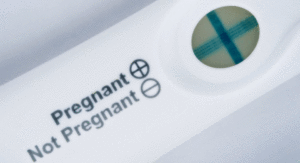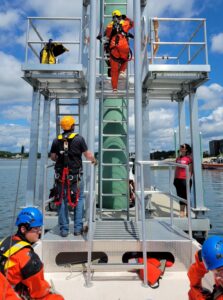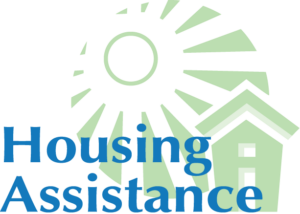 HYANNIS – One recent study said that women who want to become pregnant should eat more seafood and another said they should avoid fast food. But don’t be in a hurry to overhaul your diet. The real key is elsewhere.
HYANNIS – One recent study said that women who want to become pregnant should eat more seafood and another said they should avoid fast food. But don’t be in a hurry to overhaul your diet. The real key is elsewhere.
“The first thing I always tell patients is to have a lot of patience,” said Tara Chute, MD, who practices obstetrics and gynecology at Cape Cod Hospital.
“I see a lot of couples who come in for a discussion on preconception or infertility really early in the process, within even a couple of months of trying. But the vast majority of couples – 80 to 90 percent – will get pregnant within a year. So most of the time, I’m having a discussion about just being patient.”
There are a few things that can improve your odds, and it mostly comes down to having a good, healthy lifestyle, said Dr. Chute.
“Women can have difficulty ovulating or becoming pregnant with a BMI over 27, which is still in just the overweight category, not even the obese category,” she said. For women with those BMI levels, “losing between five and 10 percent of their body fat will improve their chances of ovulation and pregnancy.”
Women in her practice who are obese are encouraged to lose weight so they can have more regular cycles and regular ovulation, she said. Women who are underweight may need to gain weight so that they can have more regular cycles.
Eating fast food now and then won’t ruin your chances of getting pregnant, Dr. Chute said. But people who eat fast food multiple times per week are more likely to be overweight or obese – and thus have a more difficult time getting pregnant.
There’s no superfood that will guarantee a pregnancy, she said. Adults should eat two or three servings of fish per week, but more isn’t necessarily better.
“There’s nothing about seafood that magically makes women pregnant. It’s more about having an overall healthy diet. You should avoid raw seafood and seafood that’s higher in mercury.””
Some other tips from Dr. Chute:
Exercise is helpful, mostly because it’s associated with weight and the fact that it reduces other comorbidities that can affect pregnancy, like diabetes or high blood pressure.
Try to minimize caffeine intake to less than two cups per day to lower miscarriage risk and fertility improvement.
Work with your primary care physician to try to maintain your health and maximize your ability to get pregnant and carry a safe pregnancy. For example, there are high blood pressure medications that are often used outside of pregnancy that aren’t safe when you’re first trying to become pregnant, she said.
Stress hormones can also affect the menstrual cycle. Try to maintain as low a stress level as possible – which may be hard when you’re trying to get pregnant and it’s not working for you.
“Some patients who are trying to become pregnant, particularly when they’re first trying, will try almost anything to get pregnant,” she said. “I think a lot of women are trying to find that magic answer, but most of the time it just comes down to patience.”






















